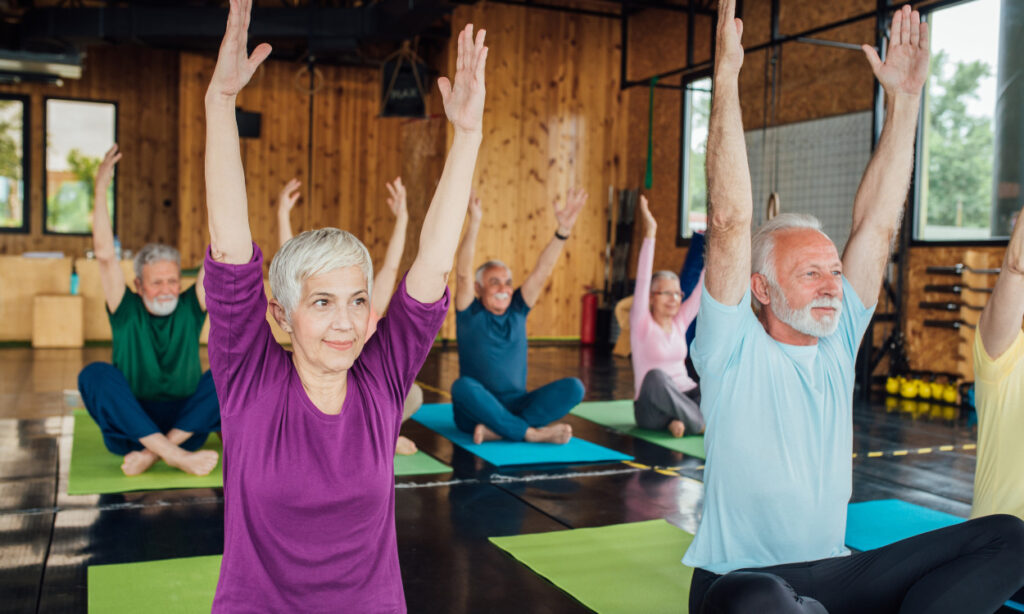In our fast-paced world, it’s easy to overlook the importance of exercise in maintaining a healthy lifestyle. However, incorporating regular physical activity into your routine is not just about shedding a few pounds; it’s a holistic approach to well-being. Let’s explore the role of exercise in simple healthy living and find the workout routine that suits you best.
Why Exercise Matters: A Pathway to a Healthier You
Boosts Physical Health:
Regular exercise is linked to a myriad of physical health benefits, including improved cardiovascular health, stronger muscles and bones, and enhanced flexibility.
Mental Well-being:
Exercise is a powerful mood booster. It releases endorphins, reducing stress and anxiety while promoting better sleep and cognitive function.
Weight Management:
While not the sole factor, exercise plays a crucial role in weight management by burning calories and building lean muscle mass.
Disease Prevention:
Engaging in regular physical activity can lower the risk of chronic diseases such as heart disease, diabetes, and certain cancers.
Finding Your Ideal Workout: Tailoring Exercise to Your Lifestyle

Consider Your Preferences:
Choose activities you enjoy to make exercise a sustainable part of your routine. Whether it’s dancing, hiking, or yoga, finding joy in movement is key.
Start Slow and Progress:
If you’re new to exercise, begin with low-impact activities and gradually increase intensity. This approach reduces the risk of injury and helps build endurance.
Mix It Up:
Variety is key to preventing boredom and challenging different muscle groups. Incorporate a mix of aerobic, strength training, and flexibility exercises.
Set Realistic Goals:
Establish achievable fitness goals that align with your overall health objectives. Celebrate small victories to stay motivated.

Conclusion: A Step Towards a Healthier Tomorrow
Embarking on a journey towards a healthier lifestyle through exercise is an investment in your well-being. By understanding the role of exercise, finding a workout that suits your preferences, and addressing common questions, you’re taking proactive steps towards a healthier and happier life. Remember, it’s not about perfection but progress. Start small, stay consistent, and enjoy the transformative power of regular physical activity in your life. Your body and mind will thank you for it.
Frequently Asked Questions (FAQs)
How much exercise do I need each week?
The general guideline is at least 150 minutes of moderate-intensity exercise or 75 minutes of vigorous-intensity exercise per week, along with muscle-strengthening activities on two or more days.
Can I exercise if I have a chronic health condition?
In many cases, yes. However, it’s crucial to consult with your healthcare provider before starting any new exercise program, especially if you have chronic health issues.
What’s the best time to exercise?

The best time to exercise is when it fits into your schedule and when you feel most energetic. Consistency matters more than the specific time of day.
Is it necessary to warm up before exercising?
Yes, warming up is essential to prepare your body for physical activity and reduce the risk of injury. Include light aerobic activity and dynamic stretches.
How can I stay motivated to exercise regularly?
Set realistic goals, find a workout buddy, vary your routine, and celebrate your achievements to stay motivated in the long run.
Can I exercise at home without equipment?
Absolutely! Bodyweight exercises, yoga, and home workout routines can be effective without the need for expensive equipment.
What’s the role of hydration in exercise?
Staying hydrated is crucial for optimal exercise performance. Drink water before, during, and after your workout.
Can exercise help with mental health issues?
Yes, exercise has been shown to have positive effects on mental health by reducing stress, anxiety, and depression.
How do I know if I’m overtraining?
A9: Signs of overtraining include persistent fatigue, increased susceptibility to illness, and a decline in performance. Listen to your body and allow for adequate rest.
Is it okay to exercise during pregnancy?
In most cases, yes. However, it’s essential to consult with your healthcare provider to ensure a safe and appropriate exercise routine during pregnancy.

